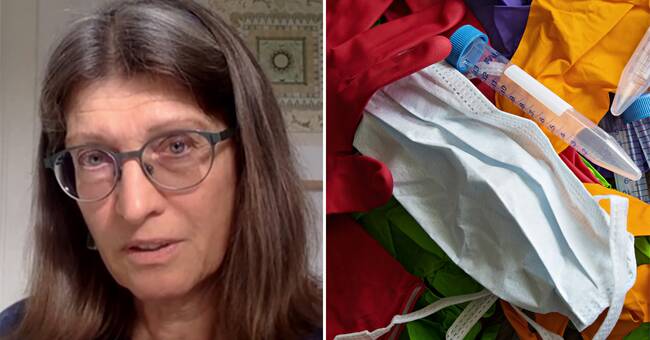New surveys from Lund University have examined Swedes' online habits when they sought protection against covid-19 now and this summer.
The research group investigated what protections and drugs they were looking for online, if they used them and what language the websites used.
30 percent had sought protection against covid-19 and half of them did not check if the sites had the EU-certified pharmacy logo required by authorized online pharmacies.
- If you scale it up to a generalizable level, you end up somewhere on a million people who have been to sites that are not safe.
It is a fairly high number if you think about it, says Susanne Lundin, professor of ethnology at Lund University who was co-responsible for the study.
Improper protection spreads infection
The research group began its study in connection with Interpol making its annual strike around 90 countries in March.
They seized 34,000 counterfeit protections against covid-19, including drugs.
False protection must be taken seriously, according to Ewa-Lena Hartman, group manager for medical technology at the Medical Products Agency.
- If you think you are protected or protect others, you behave in a certain way.
That is, you may not keep your distance or think about being careful.
If the protection does not last, it means that you may instead spread the infection even though you think you are protecting, says Ewa-Lena Hartman.
Fake internet pharmacies
Susanne Lundin says that the black market has grown in step with digitalisation and that the pharmacy monopoly has ended.
- The privatization means that we see a plethora of different pharmacies.
And fake pharmacy pages can be so plagiarized that they look just like genuine authorized pharmacies.
She believes that more information is needed about counterfeit pharmacies.
- People do not know that there are fake online pharmacies.
Therefore, active efforts are required from the authorities and clear information about the major health risks associated with buying medicines at the e-pharmacy that lacks the EU-common safety symbol, says Susanne Lundin.

